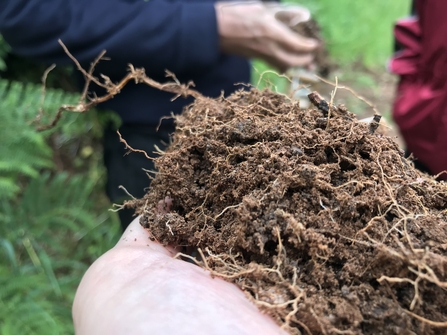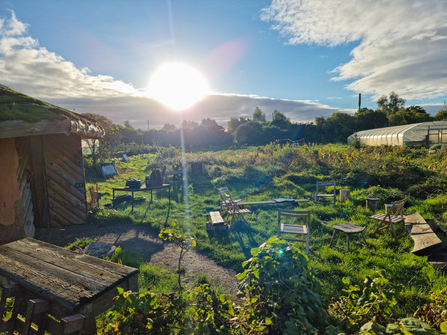It’s easy to go wild for worms, especially when you know what amazing engineers they are! Below our feet, worms are working hard by creating networks and mixing the earth up, which helps oxygen and water to flow through the soil. Worms break down fallen leaves and plants, which releases nutrients back into the soil to help the millions of soil microorganisms and fungi to thrive.
Healthy soil is the basis of healthy food, which is the basis of people with healthy tummies, strong plants and a better world! Our friends at Bristol Good Food asked us ‘What does good food mean to you’? This great question generates a lot of thought and inspiration about how important it is to have good food systems in place. Healthy soil effects our health, wellbeing, our tastebuds and happiness, the ecosystem around us, nature, biodiversity and the planet.




